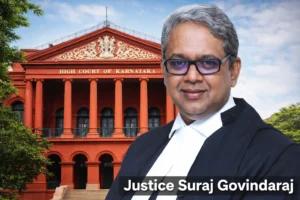In a significant judgment, the Supreme Court has restored an eviction order passed under the Maintenance and Welfare of Parents and Senior Citizens Act, 2007 against a son and daughter-in-law, affirming the rights of a 75-year-old retired engineer to reclaim his self-acquired property from unlawful possession.
A Bench comprising Justices Vikram Nath and Sandeep Mehta delivered the verdict on January 30, 2025, in the case of Rajeswar Prasad Roy v. The State of Bihar & Ors., setting aside a Patna High Court Division Bench order that had earlier quashed the eviction.
"It shall be a defeat of the purpose of the Act if Appellant is not granted the benefit of eviction against his son and daughter-in-law who have not only encroached his self-acquired property but also threatened him of false criminal complaints, abusing and creating hurdles in running of the Rest House and thereby causing mental and physical harassments to old parents," the Supreme Court observed.
Read Also:- SC Clarifies That Judgment on Admission Can Be Passed Even Outside Pleadings Under Order XII Rule 6 CPC
Background: Property and Family Conflict
The appellant, Rajeswar Prasad Roy, is a retired junior engineer from the Bihar State Housing Board. During his service, he was granted possession of a property in Kankarbagh, Patna. This property, officially transferred to him through a Deed of Lease in Perpetuity dated July 20, 1992, is run as a rental facility called ‘Preeti Rest House’ with 20 rooms that supplement his pension income.
The conflict began after his third son, Ravi Shankar (Respondent No. 8), married Minu Kumari (Respondent No. 9) in 2018. In 2021, Minu Kumari allegedly instigated disputes and coerced her husband to take control of the appellant’s property. Initially, the couple requested a single room temporarily, but later took over three rooms by breaking locks and allegedly threatened false criminal accusations.
"The Appellant claims his daughter-in-law used threats of false cases and disrupted other guests at the Rest House," stated the Court.
Faced with harassment, the appellant filed a complaint under the Maintenance and Welfare of Parents and Senior Citizens Act, 2007. On April 16, 2022, the Maintenance Tribunal directed the eviction of the son and daughter-in-law.
Read Also:- Supreme Court To Review NAAC Grading Process for Colleges and Universities
This eviction was challenged by the couple in the Patna High Court, and they also filed separate legal cases, including a partition suit claiming the property was ancestral, and a domestic violence case under the Domestic Violence Act, 2005.
The Single Judge of the High Court upheld the Tribunal’s decision. The judge highlighted that the Act provides an efficient legal framework for protecting senior citizens’ property and personal safety.
"Removal of a person with no legal right in the premises cannot be treated as an eviction," noted the Single Judge.
However, the Division Bench later reversed this decision, holding that the Tribunal lacked the authority to order eviction without a direct maintenance claim under Section 23(1) of the Act. Instead, it suggested determining reasonable rent and advised the appellant to seek redress in Civil Court.
After reviewing the facts and the law, the Supreme Court reinstated the eviction order. The Bench reaffirmed that the property was self-acquired and not ancestral, and declared that the Maintenance Tribunal was well within its rights to issue the eviction under the Act.
Read Also:- Supreme Court: Bail Not Allowed Under Section 447 of Companies Act Without Meeting Twin Conditions
The Court cited the precedent in S. Vanitha v. Deputy Commissioner, Bengaluru Urban District to clarify that eviction is a valid recourse under the Act when it serves the maintenance and protection of senior citizens.
“Eviction... would be an incident of the enforcement of the right to maintenance and protection,” quoted the Court from the S. Vanitha judgment.
Additionally, the Court stressed the duties of the administration under Rule 21(2)(i) of the Bihar Senior Citizens Rules, 2012, which mandates the District Magistrate to ensure protection of life and property of the elderly.
The Supreme Court granted Respondents 8 and 9 time until May 31, 2025, to vacate the premises and hand over peaceful possession to the appellant. The Division Bench’s decision was set aside, and the original order of the Maintenance Tribunal was restored.
Case Title: RAJESWAR PRASAD ROY v. THE STATE OF BIHAR & ORS., SLP(C) NO. 7675/2024















